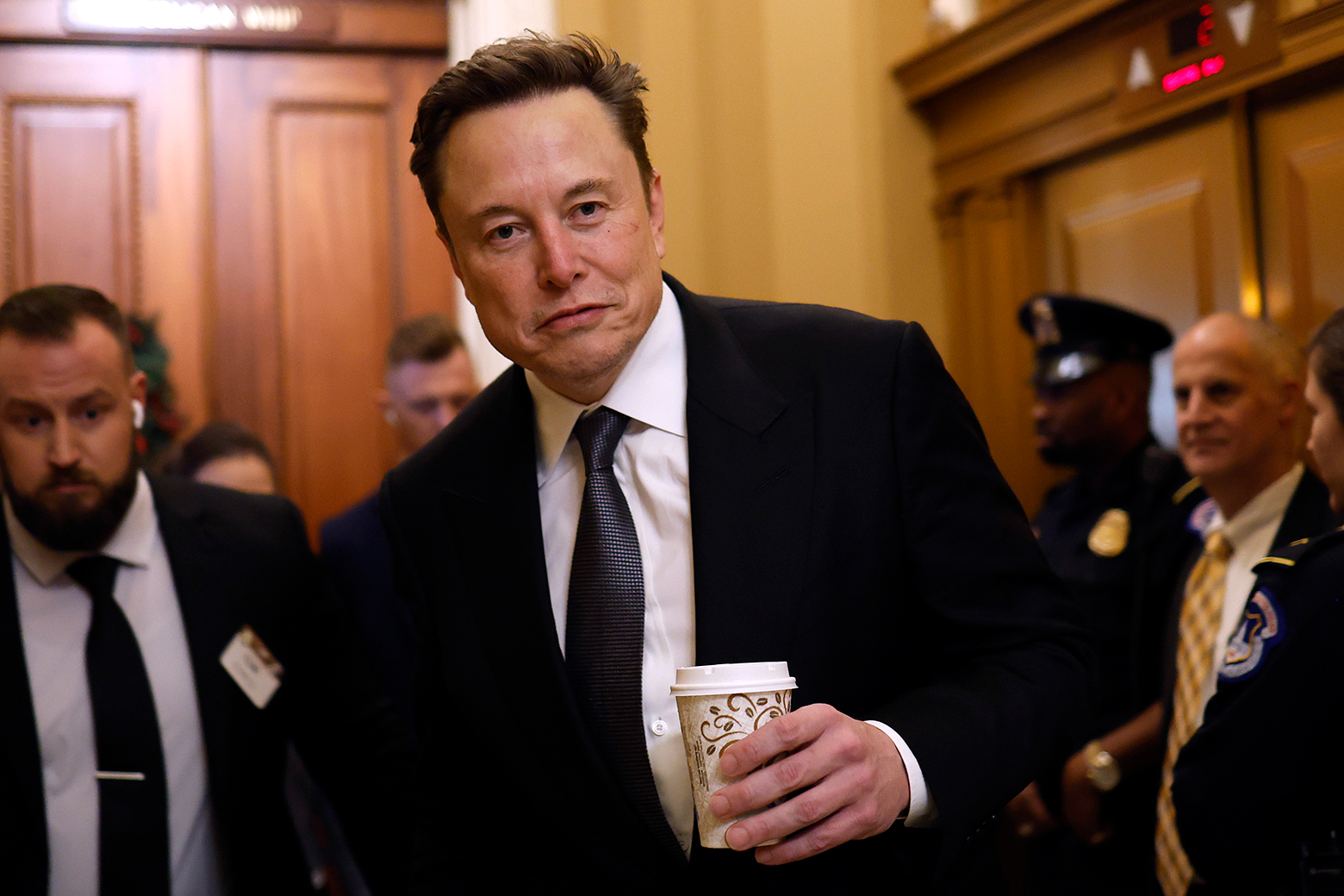Sign up for the Slatest to get the most insightful analysis, criticism, and advice out there, delivered to your inbox daily.
Elon Musk is riding high in Washington.
After boosting Donld Trump through extreme sycophancy, turning Twitter into the red-pilled X, and dousing the once-and-future president with $239 million in campaign contributions, Musk earned himself a starring role in Trump’s second administration. But he didn’t want to be a secretary of anything; rather, he wanted DOGE.
The Department of Government Efficiency, named after Musk’s favorite meme of a Shiba Inu and its shitcoin cryptocurrency Dogecoin, will be led by Musk and fellow billionaire businessman Vivek Ramaswamy. The “department” is tasked with trimming the fat in Washington, reducing bureaucracy, and making the whole sprawling enterprise run like a well-oiled machine.
In other words, Trump is adding bureaucracy in order to reduce bureaucracy. The execution promises to be even worse: DOGE is reportedly considering recommendations from the Wisconsin Institute for Law and Liberty, a right-wing nonprofit, that claims it can cut $120 billion from the federal budget through eliminating diversity, equity, and inclusion programs.
While DOGE is clearly a recipe for disaster, any good student of civics knows there’s a need for better efficiency in government. However, it was clear this week that Musk has been a direct beneficiary of the sluggishness of government.
On Tueday, the U.S. Securities and Exchange Commission, the primary federal regulator of Wall Street, sued Musk. In the lawsuit, filed in federal district court in D.C., the agency claims that Musk violated a key provision of federal securities law when he failed to file proper disclosures in buying up shares of Twitter. When an investor accumulates more than 5 percent of a company’s stock, they’re required to file reports with the SEC, an important transparency measure.
When Musk finally disclosed his stake on April 4, 2022—11 days late—the stock shot up 27 percent in a day. “Because Musk failed to timely disclose his beneficial ownership, he was able to make these purchases from the unsuspecting public at artificially low prices,” the SEC wrote in its complaint, alleging that Musk underpaid Twitter investors $150 million in stock transactions during this time—and anyone that sold during that time was deprived of the true value of their shares.
Musk has a long history with the SEC. After Musk tweeted that he was considering taking Tesla private in 2018, the SEC sued him alleging fraud. That ended in a settlement in which Musk paid $20 million and stepped down as company chairman. “I do not respect the SEC,” he told 60 Minutes later in 2018. “I do not respect them.”
In the Twitter case, Musk had an unfair advantage when he proposed buying the company for $54.20 per share on April 14, 2022, an offer that the Twitter board eventually accepted (perhaps to Musk’s surprise since he sued to get out of the deal, dropping it only when it was obvious that he would lose at trial). And even with his cheaply bought stock, Musk still couldn’t afford to buy Twitter and pay the $44 billion price tag without $13 billion in loans and $7 billion in equity investment, making it one of the largest leveraged buyouts in history.
So, if you’re keeping a detailed chronology, yes, the SEC took nearly three years to sue Musk over the Twitter deal. And it came just as Trump is set to take office, with SEC Chair Gary Gensler departing the agency. Trump will likely ask whoever replaces Gensler to drop the charges against his good friend Musk.
With Twitter, the company that Musk wanted, and then didn’t, and then bought anyway because he kind of had to, Musk paved paradise (a typically toxic social media platform) and put up a parking lot (a MAGA haven full of white supremacists, vaccine deniers, and conspiracy theorists). He turned Twitter into X, which has failed at being a successful social media platform and succeeded immeasurably in boosting the political fortunes of Elon Musk and Donald Trump.
If the government were, in fact, efficient, maybe it would have the power to stop illegal stock acquisitions in their tracks before the offer was on the table, or before the deal closed, or even soon after Musk took over.
Now, we begin the era of unbridled oligarchy. If the government couldn’t stop Musk before he took control, how could it possibly stop him in the future?



